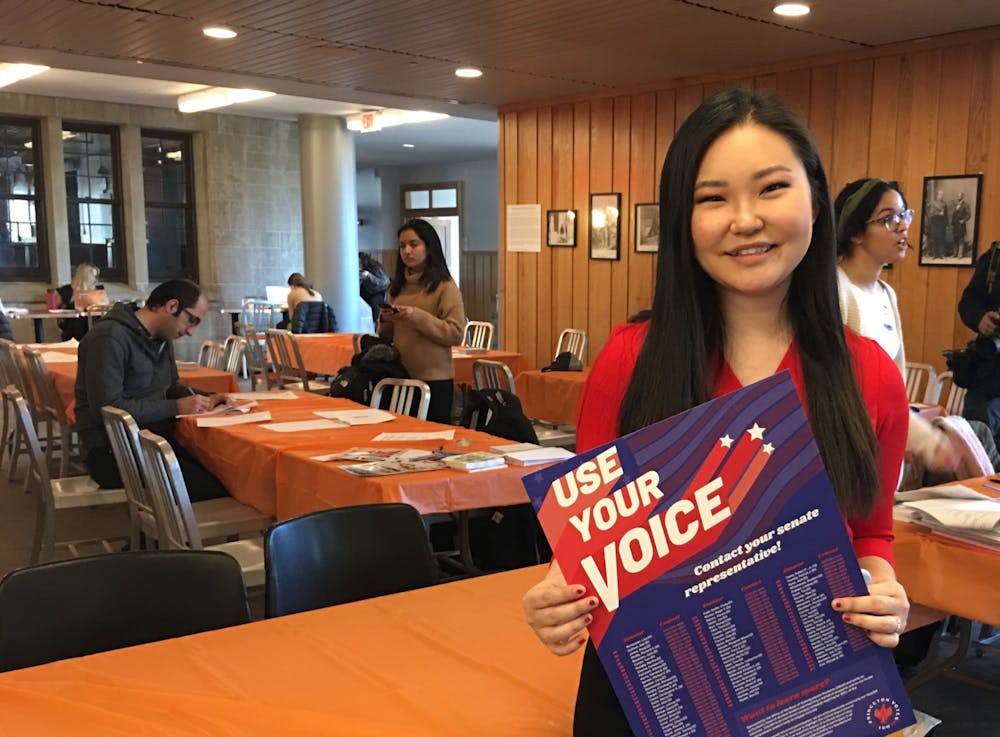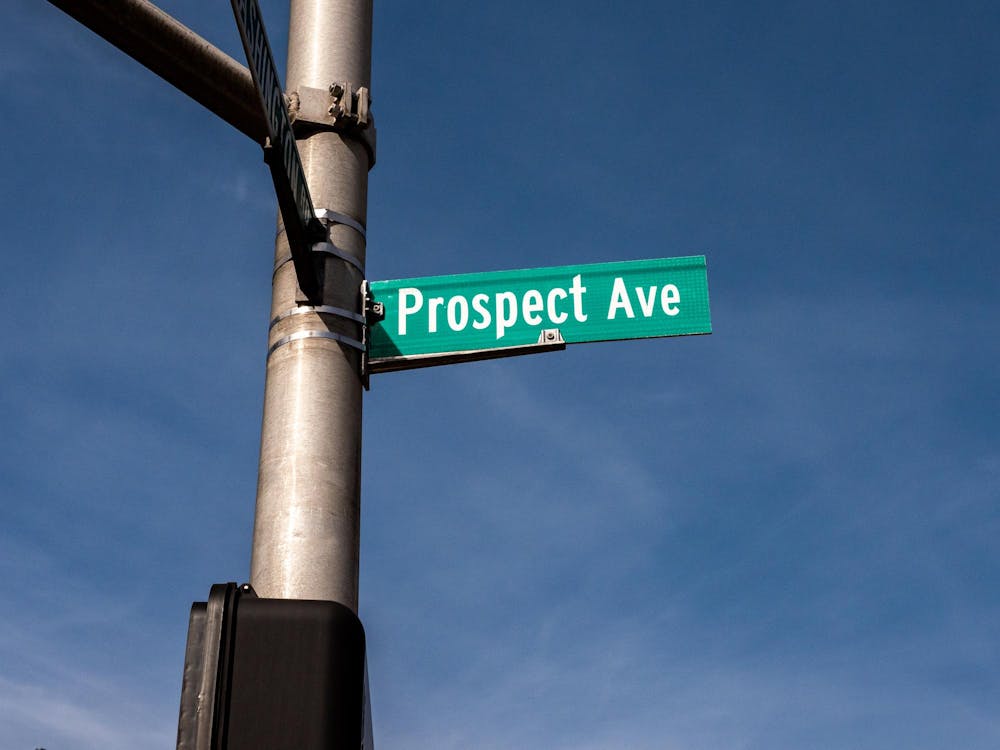Following a months-long effort from students and staff at Vote100, over half the student body has registered for TurboVote — an online platform that provides election updates and reminders.
Over the summer, student fellows and ambassadors for Vote100, an organization that seeks to engage community members in civic activity, contacted 5,331 Princeton undergraduates by phone, email, or text to discuss voter registration and political involvement at large.
The group has also begun looking ahead, planning get-out-the-vote initiatives for the 2021 New Jersey gubernatorial election.
Vote100’s origins
Only 10 percent of eligible students at the University voted in the 2014 midterm elections. In response to this low voter turnout, student coordinators and the Office of the Dean of Undergraduate Students (ODUS) joined forces to create the Vote100 initiative.
“We began our work with the stated goal that every Princetonian should vote in every election in which they are eligible,” Deputy Dean of Undergraduate Students Thomas Dunne told The Daily Princetonian.
Dunne has led many of Vote100’s campaigns and has been involved in voting initiatives for students since 2000.
Vote100 has organized events, social media campaigns, and persistent email blasts. In 2018, the student voter turnout at the University rose to 43.6 percent, according to statistics from the National Study of Learning, Voting, and Engagement (NSLVE).

Despite its successful social media campaigns and social events, which included celebrities such as Jon Stewart and Mike Birbiglia, Vote100 did not kick into high gear until summer 2020.
In light of the crucial election year, and to provide summer internships for students whose plans COVID-19 had canceled, Vote100 held a 10-week paid fellowship program for 26 students — each of whom received a stipend of $3,000.
The students worked virtually to promote voter turnout in the student body. Among other tasks, they produced orientation materials, created advertisements, and cold-called their peers to discuss TurboVote.
Vote100 also worked closely with the Office of the Registrar, created its first-ever faculty advisory board, and hosted many online events centered around the 2020 election.

“This was a moment when Vote100 went from being an undergraduate student initiative to a campus-wide initiative,” Dunne said of the summer.
As a result, in the months leading up to the election, 2,881 undergraduate students signed up for TurboVote, according to data released by ODUS.
Dunne added that student interns amassed considerable knowledge about the complexities of voter registration, which varies state-by-state.
Dylan Shapiro ’23, a summer fellow, said that a large part of his work was helping students navigate the various deadlines and logistical hurdles for voting in different states.
“Anything that wasn’t addressed in TurboVote, I made sure that information was out there on the website,” Shapiro said. “Those were probably some of the more meaningful interactions — actually helping people navigate that process.”
Vote100 fellows also shared voter registration with 330 student organizations, many of which were athletic groups. Ella Gantman ’23, a member of the women’s varsity soccer team, served as the lead athletics ambassador, in which capacity she helped organize outreach and cooperation with teams and coaches to get every student-athlete signed up to vote.
“I thought that it was a really cool opportunity to kind of set a precedent at the University for how students engage with civics in such an important election year and with elections in general,” Gantman said.
As part of Vote100’s efforts, Gantman, alongside other Vote100 fellows, co-authored an opinion piece in the ‘Prince’ that highlighted the University’s historically low turnout and exhorted students to vote.
“People at this school were supposed to be really engaged, really smart people who should be doing things like voting, who should be taking that civic responsibility,” said Kai Tsurumaki ’23, another student fellow who worked in communications and social media.
Student fellows Shapiro, Gantman, and Tsurumaki were pleased with the student body’s response.
“A good chunk of people responded,” Shapiro said. “Most people were very thankful that we are doing individual outreach about voting.”
Tsurumaki echoed Shapiro’s sentiments, describing “an incredibly positive response so far.”
“I’ve seen a lot of my friends, a lot of people I know signing up and also trying to share and spread our projects,” he added.
Although over half of the student body signed up for TurboVote prior to November, NSLVE will not have data on the University’s overall voter turnout for “about six to eight months, barring delays with the voting records.”
“After a federal election, compiling a complete set of voting records that has been certified by secretaries of state takes several months,” the NSLVE Frequently Asked Questions notes. “The Clearinghouse then matches enrollment and voting records.”
Expanding the scope
Gantman and Tsurumaki also helped found the Poll Hero Project, a campaign that helps high school and college students become poll workers. They created the project to offset the nationwide lack of poll workers, many of whom could not work due to the pandemic. In the three months before the election, over 37,000 high schoolers and college students used the project to register as poll workers.
“No one imagined we could have recruited that many poll workers,” said Ryan Schwieger ’21, who helped head the Poll Hero Project.
Dunne, who helped the Poll Hero Project informally, hopes both initiatives indicate that students will remain politically engaged.
“I would love it if this most recent period is a marked shift where a lot more young people get into the electorate and vote, and that this pattern continues through the rest of their lives,” he said.
For students involved in both projects, the parallels were clear.
“There is this important interplay between both increasing the accessibility of voting and increasing voter turnout that really can help strengthen our democracy and our democratic institutions,” Tsurumaki said.
In the recent Undergraduate Student Government (USG) elections, Vote100 fellows Joe Shipley ’22, Ana Blanco ’23, and Abigail Poten ’23 sponsored a referendum calling for the University to designate Election Day a holiday. The measure passed with 89 percent of the vote.
“The main authors are Vote100 fellows, but it’s their own project,” Dunne said. “I love the idea of Vote100 germinating this sort of energy and enthusiasm.”
Shipley emphasized that the referendum was devised independently of Vote100 and noted that the University initially resisted making Election Day an institutional holiday, citing its effects on the academic calendar.
“We floated the idea as Vote100 fellows during the summer, and the administration, while not hostile to the idea of a campus holiday on Election Day, did make it very clear that they did not see room in the academic calendar for one,” Shipley wrote in an email to the ‘Prince.’ “We felt that the academic calendar should be flexible enough to accommodate something as important as voting, but it’s too early to tell whether or not the administration agrees now.”
This particularly eventful election year is coming to a close, but Vote100 has no plans to slow down.
According to Dunne, Vote100 is already planning for the 2021 off-year New Jersey gubernatorial election, and thinking about more long-term projects for increasing voter turnout and improving voter accessibility at the University and in the state.
“Vote100 is not about any one election,” Dunne said. “It’s about every election.”








